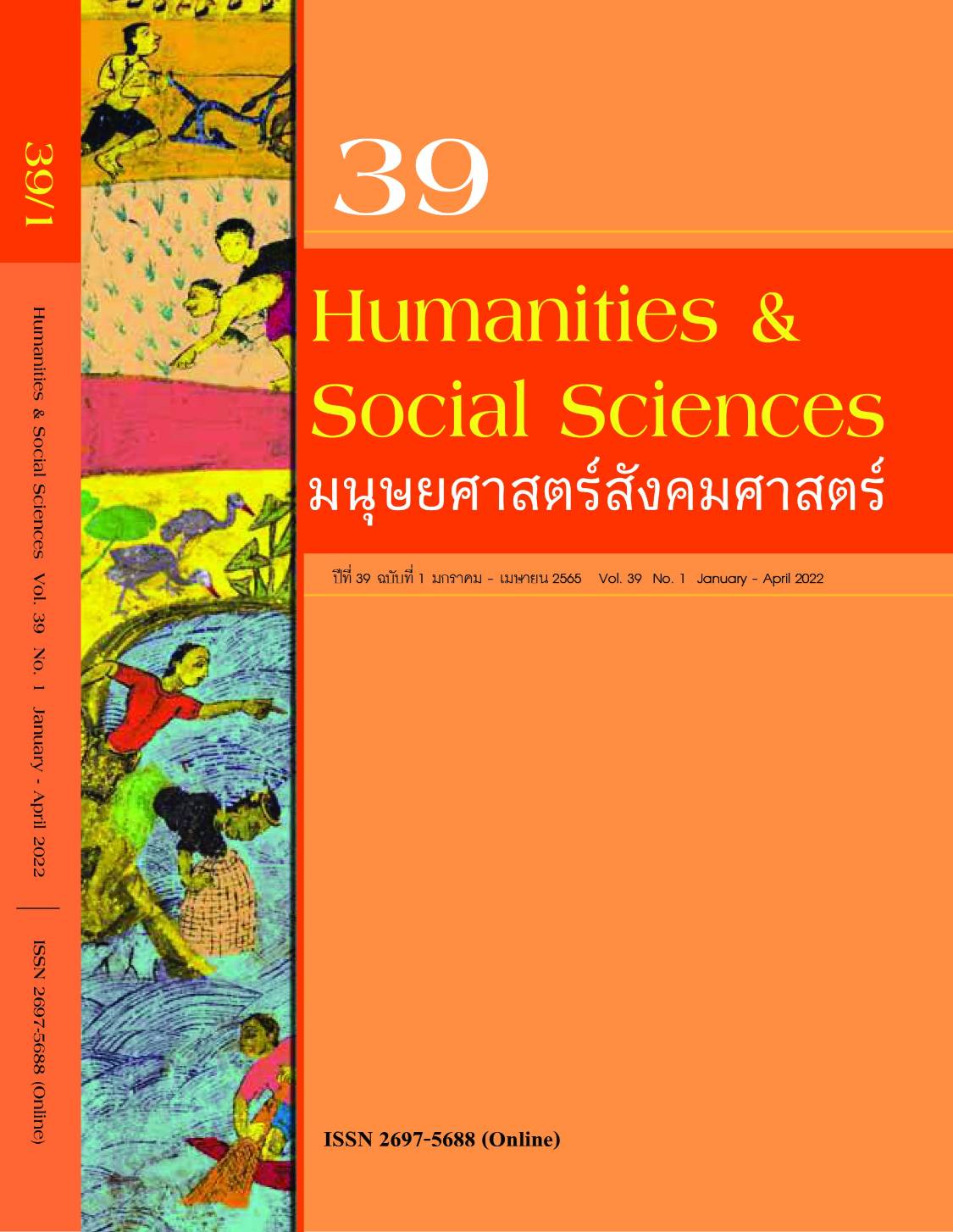การศึกษานวนิยายเรื่องเมียหลวงโดยใช้ทฤษฎีวรรณกรรมแนวรื้อสร้าง
Keywords:
deconstruction, literary theory, literary criticismAbstract
Abstract
This article is part of a larger study entitled “Deconstruction: Concept, Theory, and Approaches to Literary Criticism”. The study intends to examine deconstruction for two purposes: 1) to delve into the concept and theory of deconstruction and 2) to implement approaches to literary criticism from a deconstruction perspective. The study complied knowledge from books about literary theories and literary criticism theories and applied such theoretical knowledge into analyzing Thai literary works.
This article reports on the analysis of Mia Luang in answer to the second purpose. The analysis shows that there are two levels of textual meaning. While the first level is the key meaning conveyed through the story plots, the other level contains the opposite meaning hidden in the specific logic. The important binary oppositions found in the novel include fidelity/adultery, progressivism/conservatism in light of gender equality, and essence/appearance. At the level of plot-derived meaning, these binary oppositions are presented foregrounding the first element over the other element. Fidelity is favored over adultery, given that the latter causes problems for women. Progressivism which stresses the importance of gender equality is also more valued than conservatism prevailing in the male-dominated society. Moreover, love or affection is the essence which is regarded as more important than prestige, fame, and money which are the appearance.
However, the scrutiny of the specific logic reveals the opposite meaning which implicitly values the second element over the first one. In the first pair, adultery is more valued than fidelity. This contrary logic shows that adultery is the quality of men that women desire to possess. In the second pair, conservatism is given more value than progressivism. This is because the female protagonist is positioned as fighting against conservatism. In the third pair, however, the essence is not foregrounded over appearance. This can be explained for two reasons. First, love and affection play a similar role as do prestige, fame, and money. This instills the feeling into the characters that they are superior in status to others. Second, the story has a contrary logic that actually presents the characters who are the target of possession on the side of appearance.
Keywords: deconstruction, literary theory, literary criticism
References
ชูศักดิ์ ภัทรกุลวณิชย์. (2545). อ่าน (ไม่) เอาเรื่อง. กรุงเทพฯ : โครงการจัดพิมพ์คบไฟ.
ทำนอง วงศ์พุทธ. “การวิจารณ์วรรณกรรมแนวรื้อสร้าง : แนวคิด ทฤษฎี และแนวทางการวิจารณ์”. วารสารของคณะมนุษยศาสตร์และสังคมศาสตร์ มหาวิทยาลัยขอนแก่น . 37, 2 (พฤษภาคม - สิงหาคม 2563) : 278 – 296.
สุรเดช โชติอุดมพันธ์. (2559). ทฤษฎีวรรณคดีวิจารณ์ตะวันตกในคริสต์สตวรรษที่ 20. กรุงเทพฯ : สำนักพิมพ์แห่งจุฬาลงกรณ์มหาวิทยาลัย.
Blessler, Charles E. (1998). Literary criticism : an introduction to theory and practice. 2nd ed. New Jersey : Prentice Hall.



